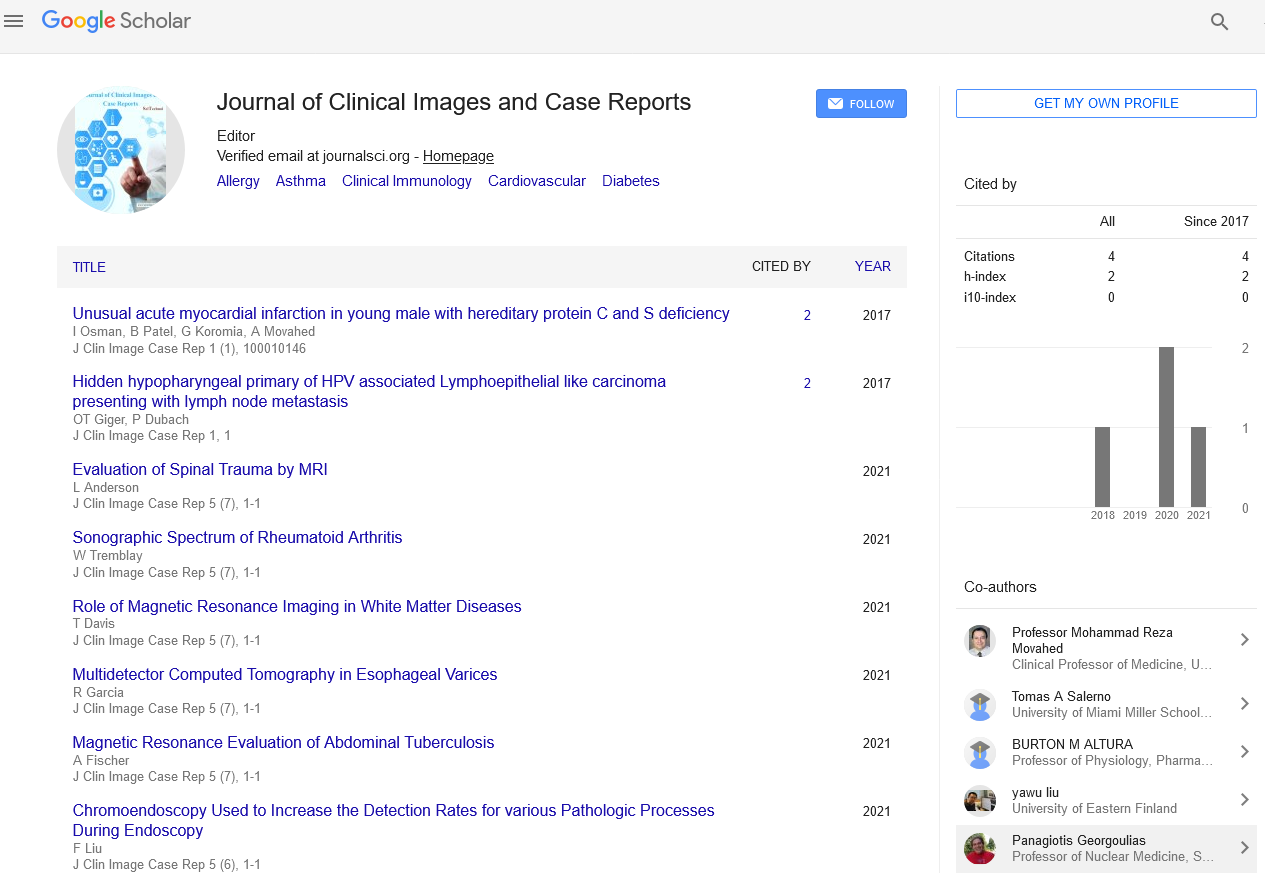Perspective, J Clin Image Case Rep Vol: 7 Issue: 4
Cognitive Behavioral Therapy: An Effective Strategy in Treating Anxiety, Depression, PTSD, and OCD
Carlos Etain*
1Department of Clinical, Neuro and Developmental Psychology, Vrije University Amsterdam, Amsterdam, The Netherlands
*Corresponding Author: Carlos Etain,
Department of Clinical, Neuro and Developmental Psychology, Vrije
University Amsterdam, Amsterdam, The Netherlands
E-mail: marike.wisman@arkinjeugd.nl
Received date: 15 July, 2023, Manuscript No. CICR-23-113219;
Editor assigned date: 17 July, 2023, PreQC No. CICR-23-113219 (PQ);
Reviewed date: 31 July, 2023, QC No. CICR-23-113219;
Revised date: 07 August, 2023, Manuscript No. CICR-23-113219 (R);
Published date: 17 August, 2023, DOI: 10.4172/CICR.1000259
Citation: Etain C (2023) Cognitive Behavioral Therapy: An Effective Strategy in Treating Anxiety, Depression, PTSD, and OCD. J Clin Image Case Rep 7:4.
Abstract
In the realm of mental health, the past few decades have witnessed a profound transformation in the way we understand and approach the treatment of conditions like anxiety, depression, and Post-Traumatic Stress Disorder (PTSD). At the heart of this transformation lies Cognitive Behavioral Therapy (CBT), a therapeutic approach that has demonstrated remarkable effectiveness in alleviating the burden of these mental health conditions.
Description
In the concept of mental health, the past few decades have witnessed a profound transformation in the way we understand and approach the treatment of conditions like anxiety, depression, and Post- Traumatic Stress Disorder (PTSD). At the heart of this transformation lies Cognitive Behavioral Therapy (CBT), a therapeutic approach that has demonstrated remarkable effectiveness in alleviating the burden of these mental health conditions. This article explores the CBT and its profound impact on the lives of individuals suffering with anxiety, depression, and PTSD.
The foundations of CBT
CBT is a structured, time-limited psychotherapy that aims to help individuals identify and challenge negative thought patterns and behaviour contributing to their mental health challenges. It is rooted in the fundamental concept that our thoughts, feelings, and behaviour are interconnected, and modifying negative thought patterns can lead to improved emotional well-being.
CBT for anxiety
Generalized Anxiety Disorder (GAD): CBT equips individuals with practical tools to manage excessive worry and anxiety, focusing on problem-solving and coping strategies.
Social anxiety disorder: Exposure therapy, a key component of CBT, helps individuals confront their fears gradually, leading to reduced social anxiety and improved confidence.
CBT for depression
Cognitive restructuring: CBT assists individuals in challenging and reframing negative thought patterns that contribute to feelings of hopelessness and despair.
Behavioral activation: Encouraging individuals to engage in pleasurable and rewarding activities can counteract the inertia often associated with depression.
CBT for PTSD (Post Traumatic Stress Disorder)
Exposure therapy: CBT helps individual’s process traumatic memories and reduce the emotional intensity associated with PTSD through controlled exposure to triggers.
Cognitive Processing Therapy (CPT): CPT addresses the cognitive distortions and guilt often experienced by individuals with PTSD.
CBT for OCD (Obsessive-Compulsive Disorder)
Exposure and Response Prevention (ERP): CBT for OCD involves confronting obsessive thoughts and preventing compulsive behaviours, gradually reducing their intensity and frequency.
The evidence of effectiveness
Countless studies and clinical trials have attested to the effectiveness of CBT in treating anxiety, depression, and PTSD. CBT has consistently demonstrated its ability to reduce symptoms, improve functioning, and prevent relapse. Moreover, its structured nature makes it adaptable to various age groups and cultural backgrounds.
The accessibility of CBT
CBT's success lies not only in its efficacy but also in its adaptability. It can be delivered in various formats, including individual therapy, group therapy, and self-help materials. The advent of tele-therapy and digital CBT programs has further expanded its reach, making mental health treatment more accessible than ever.
The holistic approach
CBT does not exist in isolation; it often complements other treatment modalities, such as medication and mindfulness-based therapies. This holistic approach ensures that individuals receive comprehensive care tailored to their unique needs.
Conclusion
CBT has emerged as a potential approach for those suffereing with the burden of anxiety, depression, and PTSD. Its evidence-based approach, focus on practical strategies, and adaptability have revolutionized mental health treatment. As CBT continues to evolve, it holds the potential of transforming even more lives, fostering resilience, and guiding individuals toward a brighter, more hopeful future in the concept of mental health.
 Spanish
Spanish  Chinese
Chinese  Russian
Russian  German
German  French
French  Japanese
Japanese  Portuguese
Portuguese  Hindi
Hindi 